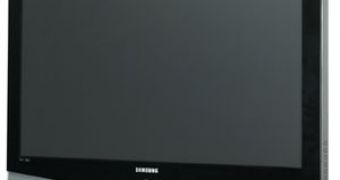LCD panels coming to end customers in the form of big screen TV sets and computer monitors are very popular on the market today, so there is always a high demand of them and of course where is demand the hardware manufacturers are closing in to promote and sell their products.
In order to consolidate their respective product lines and their market positions, Samsung and Sony have agreed to continue investing in their 8G production lines which form a joint venture named S-LCD. This joint venture appeared partly because of the high market demand as well because of high competition of different brands. According to the news site digitimes that cites Cho Yeong-duk, vice president of Samsung's LCD business, both sides have reached an agreement concerning the future of their joint venture and now talks are underway concerning the exact amount of money to be invested as well as other details.
As the S-LCD joint venture is supplying both of its parent companies which manufacture and ship quite a number of LCD based products and its full output of 50,000 substrates is yet to be reached, a second 8G production line is very likely to be built in Tangjeong, ChungCheongNam-Do, South Korea. The second 8G production plant which is being built by the two companies may become operational at the end of 2008 or that the beginning of 2009, which means that Samsung and Sony will keep their advantage over Sharp which is now preparing for a 10G production plant.
As Samsung skipped the entire production process of the 6G LCD panels and concentrated instead on higher generation panels, it becomes clear that small and medium panels for TV sets and the like are no longer a priority for the Korean manufacturer. The 8G fabrication plant will boost Samsung's line of 40 and 50 inch TV panels and the company is very likely to transfer more of the LCD business to the 7G lines. While 10G panels will become sooner or later a reality, Samsung has no hard plans for such production lines while Sony, its partner, said that it will entirely skip that generation.

 14 DAY TRIAL //
14 DAY TRIAL //